It’s hard to find a new non-smartphone for sale. They exist, but since they are such a niche product, you usually have to dig a little harder to find one.
Which is why I found it interesting to learn recently that a group has released a new phone that has all of the benefits of a regular feature phone, but is technically a smartphone.
It’s called the Lightphone.

What is the Lightphone?
The Lightphone is a phone device with an extremely small form-factor, with a black and white screen, which is, in their words, “designed to be used as little as possible“.

Indeed, it does very little. It makes calls, it has a clock, and that’s it. No messaging. No WiFi. No data.
In fact, the Lightphone does less than my little flip phone.
This is intriguing. Their messaging is pretty on point about how smartphones vie for your attention and your time to the detriment of pretty much everything else: your money, your relationships, your presence.
So should I buy the Lightphone? Alas, no, and for a very simple reason: it requires a smartphone to work.
The Lightphone is billed as a “second phone” that uses your existing smartphone to function. As far as I can tell, it does not work on its own. The idea is that you keep your smartphone in your bag and out of your pocket, while you bring out your Lightphone.
While this is a nice transitional product for many people who are looking to ease their technology addiction, it doesn’t change the fact that the Lightphone is, technically, just another app, albeit one in hardware form.
Enter the Lightphone 2
The founders probably realized this, and also realized that maybe a few other features, such as messaging, wouldn’t go amiss in such a diminutive package, while still remaining faithful to the original vision.
Thus, we get the Lightphone 2, a purely standalone device with a black and white, matte, e-ink screen. It offers the following features:
- Calling
- Messaging
- Contact lists
- Clock and alarm
With the possibility of a few more.
(I say the “possibility of a few more” because, at the time of writing, the Lightphone 2 hasn’t been released yet. It’s currently on an Indiegogo campaign, though as of today, they’ve reached 600% of their funding goal. The first phones are expected to ship in July 2019.)
They have the potential to add some other features, a few of which seem distinctly in the realm of “smartphone” to me:
- Directions (how??)
- Ride-sharing (using what service??)
- Playlists (from where??)
The device retails for $300, which feels like a lot for what you get, though nothing compared to whatever Apple is carting out these days. And maybe it’s worth it to pay a little more if it changed behavior for the better.
The elephant in the Lightphone 2 is that it runs Android (or a modified version of it). So one could use it to build in practically anything that a normal Android phone would. Technically, then, it’s a smartphone, isn’t it?
What really is a smartphone, anyway?
A smartphone is a multi-purpose portable electronic device that through instant connectivity fosters an addictive, obsessive, always-on relationship, usually to the detriment of in-person presence.
All this gets to the heart of the matter for me which is: what really is a smartphone? Are there certain fundamentals of what it means to be a smartphone? Or is it a “know it when I see it” situation?
Wikipedia says that smartphones are distinguished from feature phones:
“…by their stronger hardware capabilities and extensive mobile operating systems, which facilitate wider software, internet […] , and multimedia functionality [… Smartphones] support wireless communications protocols such as Bluetooth, Wi-Fi, and satellite navigation…”
Wikipedia
What’s interesting here is that the definition is primarily a comparative one. They’re like a feature phone, except they do…more.
I would instead like to propose a different definition. “A smartphone is a multi-purpose portable electronic device that through instant connectivity fosters an addictive, obsessive, always-on relationship, usually to the detriment of in-person presence.“
In other words, if you can’t put it away, and it takes you out of the moment where you are, it’s probably a smartphone.
It may not be a precise definition, but it’s at least not a comparative one.
Does the Lightphone count as a smartphone? Maybe, maybe not.
But I know which one I’d choose if those were my two options.
What do you think of a product like the Lightphone?
